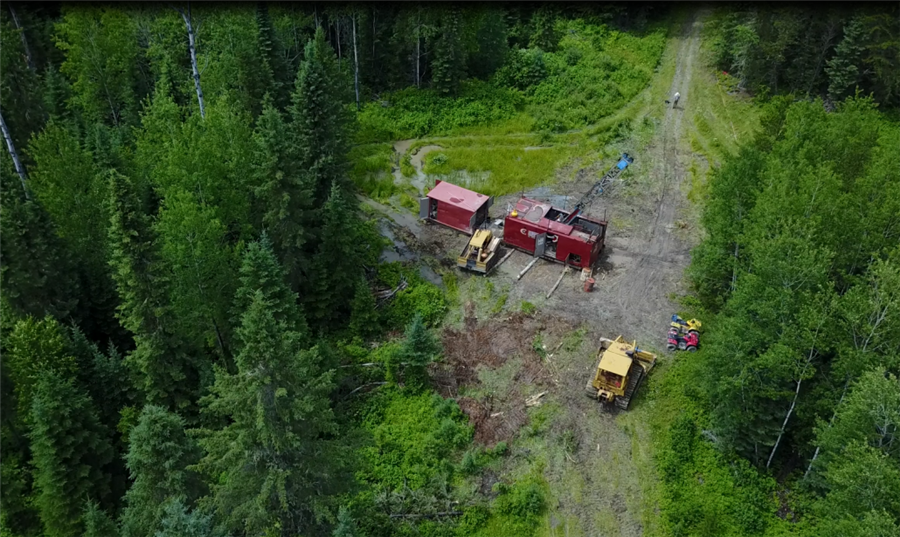Great Bear continues to hit gold along LP fault at Dixie

Latest results from Great Bear Resources’ Dixie project continue to suggest continuity of gold mineralization along a four km stretch of the 18 km LP fault zone.
Results from the one kilometre long undrilled Gap zone include 4.2 metres of 16.8 g/t gold and 45.5 metres of 1.25 g/t gold. These intercepts are from within the first 170 metres of core. This hole did not reach the LP fault boundary.
The Gap zone is located between the previously defined Bear-Rimini and Yuma zones.
The Bear-Rimini zone returned intercepts of 41.8 metres of 1.13 g/t gold and 38 metres of 1.13 g/t gold
The Auro zone, located south-west of Yuma, returned 8.7 metres of48.67 g/t gold.
The Bear-Rimini zone returned intercepts of 41.8 metres of 1.13 g/t gold and 38 metres of 1.13 g/t gold.
“With the discovery of high-grade gold mineralization in the new Gap area, the last significant undrilled segment of the LP fault between the Bear-Rimini and Viggo zones is being successfully filled. Remarkably, all of the drill holes completed into the LP fault structure to date have intersected similar gold mineralization and host geology,” said Chris Taylor, president and CEO said in the release.
At Bear-Rimini, continuous gold mineralization has been traced from near-surface down to a vertical depth of 400 metres.
A 200,000 metre drill program is underway at Dixie. The four kilometre stretch of gold mineralization traced to date along the LP fault remains open on strike and at depth. Next year, the company plans to test new targets, conduct step-out drilling over 12 km of the LP fault and infill areas where it has intersected gold mineralization.
Assays are pending for additional holes completed further along the LP fault and within the Gap zone.
In October, Great Bear announced plans to spinout a two% net smelter return royalty on potential future production from Dixie to its shareholders. The company plans to provide additional details on the spinout in January.
Two types of gold mineralization have been identified at the 91.4 sq. km Dixie project: high-grade gold in quartz veins, typical of Red Lake deposits, as well as high-grade disseminated gold with broad mineralized envelopes, found along the LP fault.
Great Bear initially acquired the Dixie project in 2015 and consolidated its interest to 100% in 2017. It started drilling later that year.
(This article first appeared in the Canadian Mining Journal)
{{ commodity.name }}
{{ post.title }}
{{ post.date }}




Comments